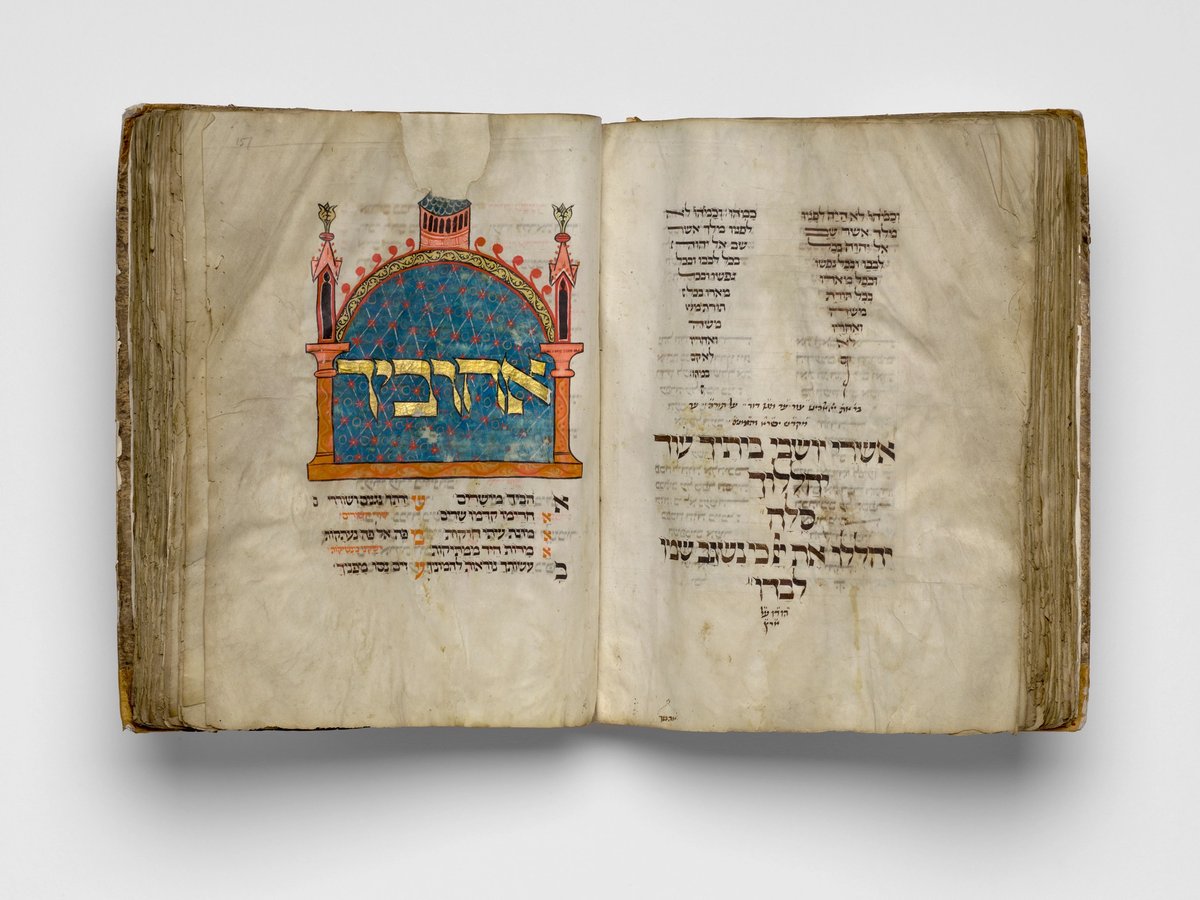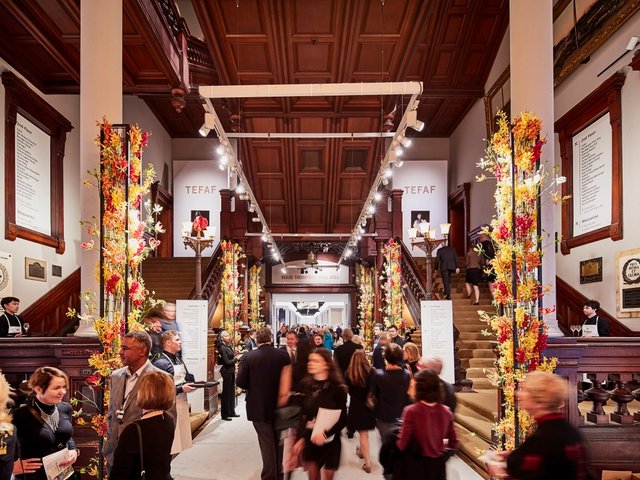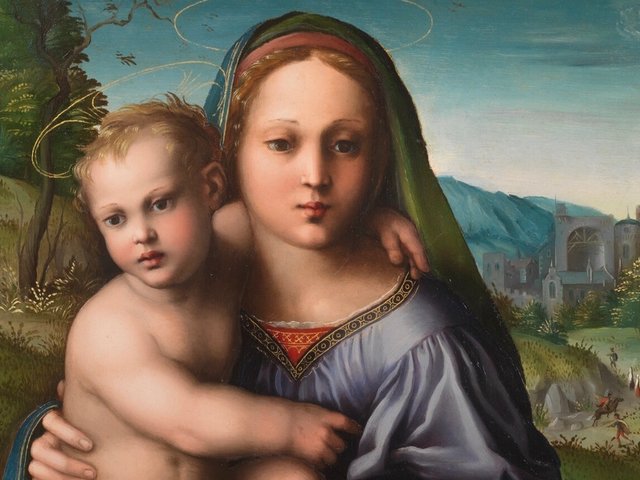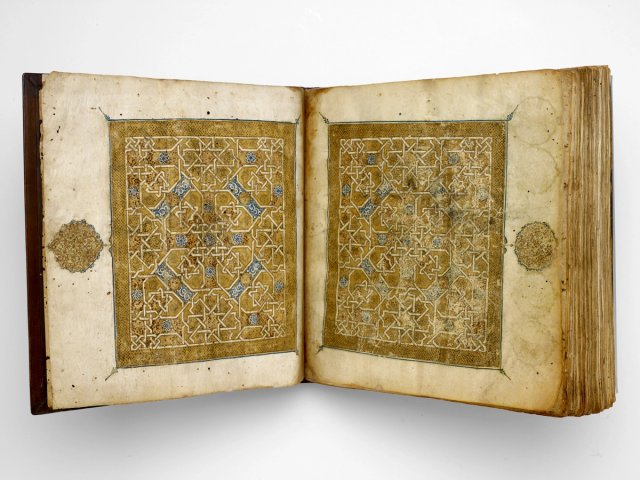A rare 14th-century Hebrew codex in the collection of the Museum of Fine Arts, Houston (MFAH) will be conserved after a presentation in the forthcoming edition of the TEFAF New York fair (5-10 May). The museum acquired the German artefact, one of the few surviving examples of a Medieval manuscript originating from the Jewish communities of the Rhineland, in 2018 from the London-based dealer Sam Fogg.
Known as the Montefiore Mainz Mahzor, the nearly 300-page illuminated manuscript dates to around 1310-20. It is meticulously painted and includes some missing illustrations that were possibly censored over the years for being deemed idolatrous or aligning with anti-Semitic tropes, as illustrations were often produced by Christian artists alongside Jewish calligraphers. The manuscript is also notable because it was actively used by congregants for centuries during holiday services for Rosh Hashanah and Yom Kippur.
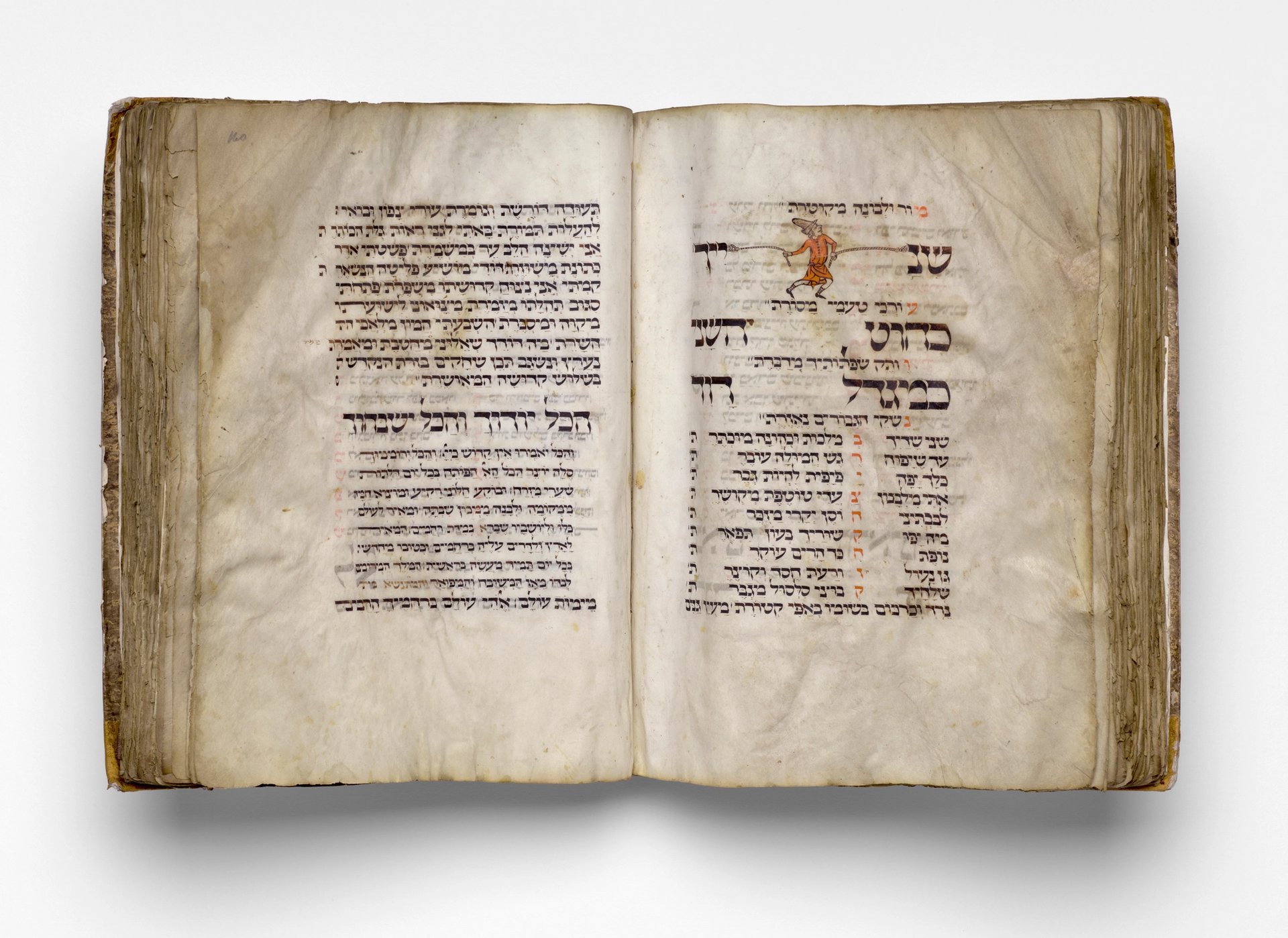
The Montefiore Mainz Mahzor (around 1310-20). Courtesy the Museum of Fine Arts, Houston.
The acquisition marked the first piece of Judaica to enter the MFAH’s nearly 70,000-piece collection, as part an ongoing curatorial focus on themes related to religion and spirituality called the World Faiths Initiative.
“This generous gift will allow our team of conservators in Houston to restore and preserve this exceptional touchstone of Jewish heritage,” the museum’s director Gary Tinterow said in a statement.
The conservation project has been realised with a €25,000 (around $27,600) grant awarded by The European Fine Art Foundation’s (TEFAF) museum restoration fund, an annual initiative launched in 2012 to support the conservation and research of historical artworks.
The TEFAF fair makes its return to the Park Avenue Armory in May for its first New York edition since the pandemic began. The organisation will award a second grant before its upcoming Maastricht edition, which runs 25-30 June.


